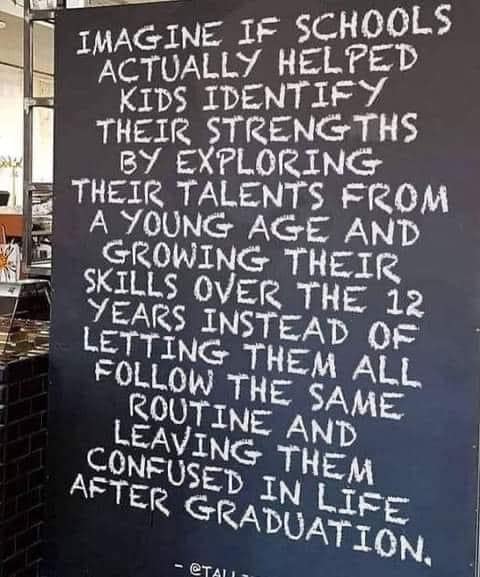Overall Educational Strategies

The major line of criticism is that our schools force kids into ways of thinking that conform with what we want of them as adults.
If I were making these extremely high-level decisions about the basic nature of education, I’m not sure I would send us in a totally different direction. That’s because I don’t believe that anyone should go through school and come out a functional illiterate in any of the major subject areas we have today.
Obviously, we need well-paid, highly compassionate teachers, and large numbers of them, thus small class sizes.
Some people lament that kids aren’t taught penmanship when they’re little, or life-skills like basic bookkeeping and horticulture when they get older. My response here is that for anything you add, you need to take something away, as there are only so many hours in a school day. Do you want farmers or scientists? Your choice.
About 20 years ago, I was on the board of directors of a private school. After a year or two I quit because, though the kids had a great deal of freedom to choose what to study, many of them were far behind. A friend’s kid couldn’t go to college after he graduated because he was two full grade-years behind in math. My friend, a brilliant and well-educated businessman, was disappointed, and stunned that we had been so incompetent.
